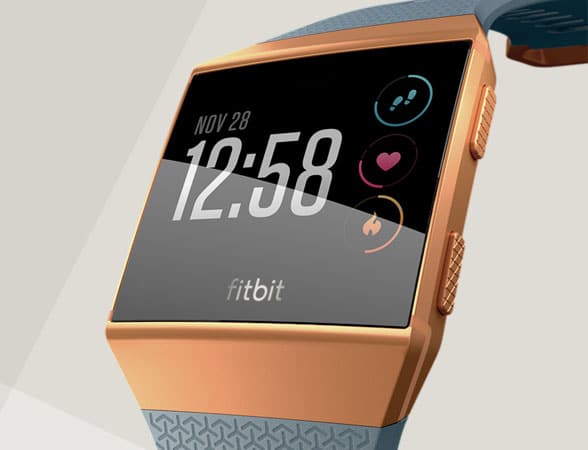
Fitness wearable maker Fitbit has launched Ionic, a smartwatch that will combine health and fitness functions with the ability to make contactless Visa, Mastercard and American Express payments as well as payments using the wearer’s Starbucks Card account.
“Over the coming months you will be able to add eligible American Express cards, as well as Mastercard and Visa credit and debit cards from top issuing banks in over 10 markets across the globe, including ANZ, Banco Santander, Bank of America, Capital One, HSBC, KBC Bank Ireland, OCBC Bank, Royal Bank of Canada, UOB and US Bank”, Fitbit says, “with more countries and banks planned soon.”
The Fitbit Ionic runs on Fitbit OS, the company’s new operating system for smartwatches, which it plans to regularly update “to add new user experiences.”
Launch features include personalized guidance, on-device dynamic workouts, a relative SpO2 sensor for monitoring blood oxygen levels, GPS, swim tracking and on-board music as well as Fitbit Pay contactless payments. An app gallery includes a range of apps for the Ionic from companies such as Pandora, Starbucks and AccuWeather.
“With Ionic, we will deliver what consumers have not yet seen in a smartwatch — a health and fitness first platform that combines the power of personalization and deeper insights with our most advanced technology to date, unlocking opportunities for unprecedented health tracking capabilities in the future,” says James Park, co-founder and CEO of Fitbit.
The Fitbit Ionic will be available in October and can be pre-ordered now from Fitbit.com and other online retailers. The Fitbit SDK will be open to developers in September 2017.
Next: Visit the NFCW Expo to find new suppliers and solutions
Cardless and contactless; one hopes that it transfers a digital token rather Than the credit card account number but it is not clear from the report. Sarah Clark can you help?
Wearables are not particularly vulnerable to being lost or stolen but it would be nice to know how Fitbit resists the fraudulent use of this device if lost or stolen. Similarly, they are not particularly vulnerable to leaking information to those who possess it illegally, but again, it would be interesting to know how Fitbit resists this.